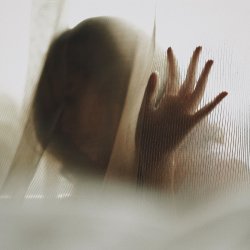
No one thinks about ABUSE until it rears its ugly head... and usually after it has been going on for a while. And no one wants to think it can happen to their parents. After all, they are in reputable elder care facilities where it is well maintained and has a very friendly staff. It does. And the more you know the "warning signs" the faster you will be able to stop it from happening to your loved ones. Allow me to share a story with you of one such incident that will hopefully make you more aware of what to look out for and how to avoid it.
Emma's story is not unlike that of many seniors who fall prey to abuse from care givers and facilities. I wanted to share her story, and that of her children, to give you a better understanding of how something like this can happen... innocently and without others being aware. Her story, as with many others, started out very subtle. Emma had the onset of Alzheimer's... a slow moving yet very tragic and disabling disease. I want to share some details about her condition since it is something I see quite often with older couples and their families. Hopefully this will help increase your awareness of how easily abuse can happen to a loved one.
Susan and Bill are in their mid-60s. The other day they expressed some very serious concerns about Bill's mother. A couple of years ago they told me they suspected Bill's 87-year old mother, Emma, was starting to suffer from Alzheimer's disease. We had a long discussion about Alzheimer's and how it is an irreversible, progressive mental deterioration that can occur in middle or old age. Fortunately, Bill's mother did not start showing signs of Alzheimer's until her mid to late 80s.
Susan had been doing some research on the Internet and learned it is the most common form of dementia. Those of us who have had to watch a friend or family member suffer through Alzheimer's know it targets and destroys memory and thinking skills. The causes and symptoms vary from one person to the next, as does the progression of the disease. Being educated about the disease and the various care options is the key to helping a loved one with Alzheimer's disease.
When Emma first started to exhibit the onset of Alzheimer's, she exhibited mild symptoms which included increasing forgetfulness and mild confusion. From all their research, Susan and Bill knew that in the late stages a person with Alzheimer's is unable to carry out even the simplest tasks.
They decided to take Bill's Mom to a geriatric specialist for an examination. Following her exam, Dr. Hawkins explained that Alzheimer's disease is complicated and getting to a diagnosis is a long process. He told Bill it was wise for him to bring Emma in for an exam because it is important to understand that there will be many steps and visits with doctors to determine whether or not Emma had Alzheimer's.
As Emma's disease progressed, her symptoms worsened. The medication was unable to significantly slow down the damage that Alzheimer's disease was causing to Emma's brain cells. Initially the medicine did stabilize Emma's condition, but only for a short time.
The doctors also treated Emma's behavioral symptoms with medication, along with some other methods to address her symptoms. Dr. Hawkins told Susan and Bill that they needed to watch for triggers. By knowing these triggers, they could employ a variety of coping strategies. Some of these included avoiding confrontation and making sure Emma got adequate rest. They needed to monitor her comfort and maintain a calm environment. Susan asked about herbal remedies, dietary supplements, and "medical" foods as possible treatments to enhance Emma's memory. Dr. Hawkins said there was no conclusive evidence that these things work.
But, as the disease progressed, Emma's memory loss increased, especially her recent memories. Emma, like many with Alzheimer's disease, experienced severe changes in behavior. She started to do things out of character. She became aggressive, agitated, and irritable. She became depressed and had wild mood swings. She also had difficulty sleeping, another common symptom. Emma's ability to think and reason became so impaired that even performing familiar tasks became impossible. The deterioration of her brain caused her to change in ways that were difficult and trying for Susan and Bill to watch and to deal with.
The progressive nature of the disease brought Emma to the point that Bill and Susan could not care for her any longer in their home. So, about six months ago, they admitted her to a nursing home specializing in caring for Alzheimer's patients. It had a good reputation and everyone seemed very friendly and helpful.
Shortly after admitting Emma to the facility, Susan and Bill created their Estate Strategy. Bill told us he was concerned about whether he had a genetic predisposition to the disease. His comment led us to a discussion of the contributing factors, including genetic, lifestyle, and environmental factors. There are a variety of factors that put Bill at risk for Alzheimer's disease. Age and genetics are risk factors. Fortunately, Bill had not then experienced any signs of the disease. But as Bill aged, his mother's history of Alzheimer's put him at a greater risk of the onset of the disease.
Being aware of the importance of lifestyle and heart health, Bill pledged to avoid stress and fatty foods. Women, like Bill's mom, are more likely to be diagnosed with Alzheimer's than men. Some causes and risk factors for Alzheimer's disease are impossible to change or control. However, lifestyle and heart health are things Bill promised to control. Happily, Bill said he was sticking to his healthy diet and exercise routine.
You might wonder what all this had to do with Emma? The key is to not only recognize it early in your loved ones but when you do, to get yourself checked out to catch any signs early. As with any disease, the earlier it can be discovered, the better chance you have of beating it or knowing how to deal with it.
But there was another issue that was weighing on their mind... and it involved the nursing facility Emma was living in. Bill and Susan were feeling that something was going on with Emma besides her Alzheimer's. They were seeing some signs that led them to suspect Emma was being abused and neglected in the nursing home facility. They knew Emma well and there were enough signs that showed them something just wasn't right at the facility.
If this was true and she was being abused or neglected, they wanted us to explain their legal remedies since they had signed a year-long contract with the home. I started with a definition of what nursing home abuse would be considered. It is generally defined as any action, or failure to act, that causes unreasonable suffering, misery, or harm to the patient. It can include such things as the assault of a patient or it can also include withholding necessary food, medical attention, or physical care from the patient.
It was wonderful that Bill and Susan had stayed involved in Emma's life while she was in the nursing home. This is absolutely the best way to recognize or prevent abuse from happening or continuing to happen.
Since they were suspicious something was happening, I took the opportunity to explain what I consider to be the five main categories of abuse and how to recognize their warning signs. Since this was so helpful for Bill and Susan, I wanted to share these 5 things with everyone. The more we are all aware of these signs, even if it isn't for one of our loved ones, the more we can prevent abuse from happening. Here's the list of the 5 categories of abuse...
1. NEGLECT
Neglect can be intentional or unintentional on the part of the nursing home facility. Neglect, in its simplest of terms, happens when a patient's needs are not being met. This would include such things as not providing appropriate food, water, medical, and personal care for the patient. This can be an intentional choice on the part of the staff or it can be unintentional due to the lack of adequate staffing in a nursing home facility.
Regardless of how it occurs, it is important to know the warning signs of neglect. A neglected patient may be dehydrated or malnourished. Bed sores and other skin conditions can also be signs of neglect. A decline in personal hygiene can be a sign of personal care being neglected. Weight loss is also a sign consistent with neglect. I asked Bill and Susan to keep an eye out for any of these signs and to see if they currently recognize any of them. If any of these are present, Emma may be the victim of neglect.
2. PSYCHOLOGICAL ABUSE
Psychological abuse in nursing homes is one type that can be very hard to identify because it can be subtle and hard to notice. An early warning sign is when the person feels extreme sadness, fear, and/or anxiety. This type of abuse occurs when there is excessive yelling, humiliation, criticizing, or shaming the patient. It might also involve threatening and intimidating the elderly patient. Often time's psychological abuse is accompanied by other forms of abuse.
Because of Emma's Alzheimer's disease, determining psychological abuse is extremely difficult. Elderly people who experience psychological abuse will often become timid and withdrawn. Depression is a sign of psychological abuse, but it's also experienced by Alzheimer's patients. Some victims of psychological abuse will become more angry, agitated, and aggressive... like Alzheimer's patients. Changes in behavior are common in patients who experience this type of abuse. Due to depression, there may be sudden weight loss and loss of appetite. These patients may even refuse to eat or take medications. Bill and Susan are aware of these warning signs and pledged to be on guard for changes in Emma's behavior.
3. PHYSICAL ABUSE
Physical abuse in nursing homes is abuse that involves physical harm to the elderly resident. It involves intentionally inflicting physical harm, such as hitting, kicking, or pinching. Physical abuse can also come from the overuse of restraints, bed injuries, or from physical neglect.
While physical abuse seems to be easier to identify, that is not always the case. Some signs of physical abuse are hidden by clothing or false stories of falls or stumbles. Bruises and abrasions, as well as falls, fractures, or head injuries, can be signs of physical abuse. Injuries requiring emergency treatment or resulting in broken bones should be red flags to the family. Often times the staff who is in charge of an abused resident will refuse to leave when the family is present. This may be a warning sign that something negative is going on with the resident. We advised Bill and Susan to be present and observant when visiting Emma to help ensure her proper treatment and care. It would also be a good idea to get her isolated from her care givers if even for a short period of time so she could be more open to sharing her feelings and insights into her care.
4. SEXUAL ABUSE
Sexual abuse is another form of abuse that takes place in nursing homes. This type of abuse involves any unwanted sexual attention or sexual exploitation. This can happen with any patient and is especially hard to detect in patients who are cognitively impaired or have memory loss, like Emma.
While sexual abuse can be hard to identify, there are some warning signs. Pelvic injury or bruising in the genital and inner thigh area can be warning signs of elder sexual abuse. Newly contracted STDs is a major red flag. Sexual abuse may cause the elderly person to have unexplained difficulty standing or walking. There may also be changes in behavior or mood, including unusual sexual behavior.
5. FINANCIAL ABUSE
This type of abuse takes place when the caregiver takes advantage of access to the elderly person's financial matters and steals or compromises the victim's finances. This can be stealing from the person, or their accounts, applying for credit, or incorrectly billing for services paid by Medicare or Medicaid.
Although Emma had limited access to money, we told Bill and Susan to watch for these top 3 warning signs of financial abuse: 1) A caregiver demanding money or taking money or possessions as gifts from her; 2) Unknown charges to credit cards or sudden mismanagement of personal finances; 3) Forcing Emma to sign financial documents or forging her name on documents.
If any of these types of abuse are suspected, it is important to ask questions of the facility and to investigate. Despite the year-long contract, Bill can remove Emma from the facility because abuse and neglect would be a breach of the contract.
Unfortunately, many of elder abuse crimes go unreported. Now Bill and Susan feel much more empowered now that they know what to watch for and what to do to take the appropriate legal action to protect Emma and others who are victims of abuse. The more you know and the more we all share our insights and stories, the higher likelihood we can eliminate the abuse of our senior loved ones in a nursing facility. Let's all work together and look for the warning signs for our loved ones and others.



